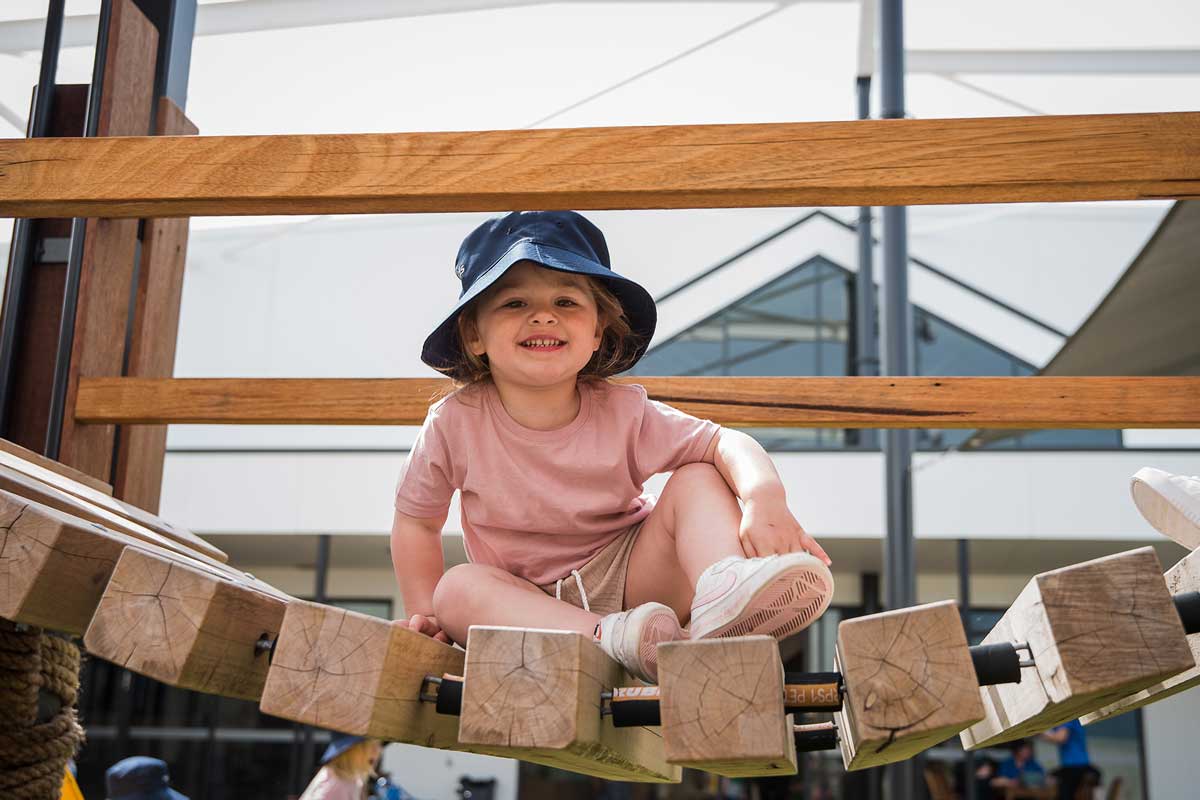The human experience and can be triggered by a variety of events or changes in a toddler’s environment.
Tantrums, on the other hand, are one of the ways that toddlers may express these big emotions. They are behavioural outbursts that occur when a child becomes overwhelmed by their feelings and lacks the proper coping mechanisms to deal with them. While a tantrum is a specific type of behaviour often characterised by crying, screaming, or stomping, big emotions themselves are the internal experiences that can potentially lead to such behaviours.
Common big emotion triggers
In order to understand how to help a child with big emotions, it’s important to first identify common triggers. Big emotions in toddlers can be triggered by a wide range of different situations, including:
- Routine Disruptions: Toddlers thrive on predictability. A sudden change in routine, like skipping a nap or a change in caregiver, can be enough to set off big emotions in toddlers.
- Frustration: Limited language skills mean toddlers can’t always express what they want, need, or feel, leading to frustration that boils over into emotional outbursts.
- Overstimulation: Too much noise, activity or a crowded environment can overwhelm a toddler’s senses and trigger a meltdown.
- Hunger or Tiredness: Basic needs greatly affect a toddler’s mood. When they’re hungry or tired, their ability to manage emotions diminishes sharply.
- Inability to Have Control: Toddlers are beginning to seek independence and can sometimes become upset when they can’t control their choices or environment.
- Feeling Misunderstood: When toddlers feel that their emotions or desires are not being acknowledged, they can become distressed.
- Sensory Processing Issues: Some toddlers have heightened sensitivity to textures, tastes, or sounds, which can lead to discomfort and emotional reactions.
- Fear: Common fears, like separation anxiety or the fear of strangers, can provoke big emotions.
- Learning New Skills: The challenge of acquiring new skills such as toilet training or dressing can be frustrating and can trigger emotional outbursts.
Managing big emotions in little ones
Managing big emotions in toddlers requires a combination of strategies and support. Here’s a framework to help caregivers approach emotional regulation in toddlers and kids with big emotions:
- Predict and Prepare: Knowing common triggers, try to anticipate and avoid situations that may overwhelm your child. Keep routines consistent as possible and help prepare your child in advance for any upcoming changes.
- Create a Safe Space: Designate a calming area in your home where your child can go to feel secure and begin to self-regulate. This might be a corner with pillows, soft blankets and their favourite toys.
- Validate Their Feelings: Acknowledge your toddler’s emotions without judgement. Let them know it’s okay to feel angry or sad and that you understand they’re having a hard time.
- Teach Emotional Vocabulary: Help your child develop a language to express their feelings by naming emotions during both calm moments and emotional episodes.
- Model Self-Regulation: Demonstrate how to handle big emotions by managing your own. Use deep breathing, calm speaking and self-calming techniques to show how to cope.
- Offer Choices: Whenever possible, give your toddler choices to help them feel some control over their environment. This can reduce frustration and empower them to learn decision-making, boosting their confidence.
- Encourage Expression Through Play: When it comes to working out how to help a child with big emotions, play is especially powerful. Use dramatic role-play, dolls or drawing to help your child express and work through their emotions in a safe and constructive way.
- Set Clear Boundaries: While emotions should be validated, behaviours can still have limits. Gently but firmly set boundaries around what is and isn’t acceptable behaviour.
- Use Distraction and Redirection: Sometimes, diverting a toddler’s attention to a different, engaging activity can prevent a full-blown tantrum.
- Teach Breathing or Relaxation Techniques: Simple techniques like “smell the flower, blow out the candle” can help a child to slow down their breathing and calm themselves.
What happens when it gets too much?
Things don’t always go according to plan, especially when trying to figure out how to handle an emotional child’s needs. If you find that your child is struggling more with their emotions than they should be, you may need to seek professional support from a paediatrician, child psychologist, or parenting class. Community resources can also be valuable as they provide an open platform to discuss support and practical advice.
How childcare helps kids manage their emotions
Childcare offers a vital foundation for children to learn emotional management through its structured routines, socialisation opportunities and guidance from trained professionals. The predictability of daily activities within childcare eases anxiety and supports emotional regulation, while the social interactions with peers enable children to develop empathy and practice managing feelings in a group setting.
Childcare educators, with their specialised training, not only intervene supportively during emotional episodes but also model positive behaviours and coping strategies. Educational activities within childcare, like storytelling and role-playing, are also used by educators to reinforce emotional intelligence.
At Aurrum Kids, we aim to empower each of our students to learn the tools to manage their emotions healthily. Our educators provide a nurturing environment where children feel safe to express themselves and learn to navigate their feelings. Through consistent routines, we offer a stable framework that helps reduce anxiety and foster emotional regulation.
To book a tour at one of our childcare centres and find out more about how our curriculum helps children learn how to handle big emotions in a healthy manner, get in touch with our team today.
